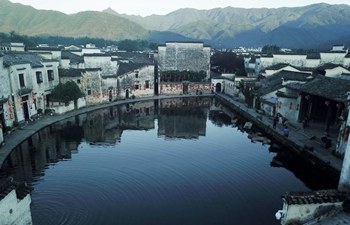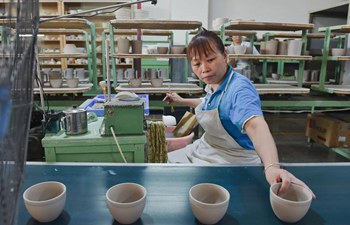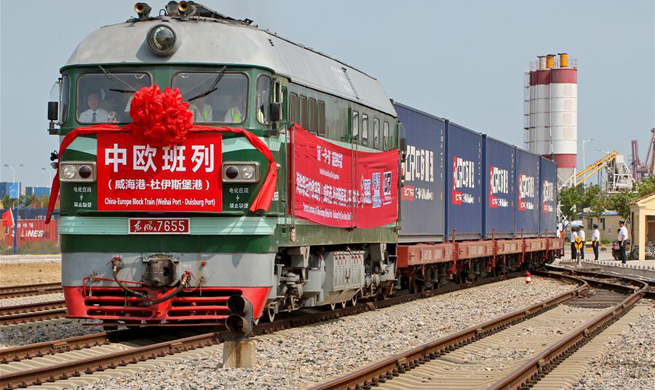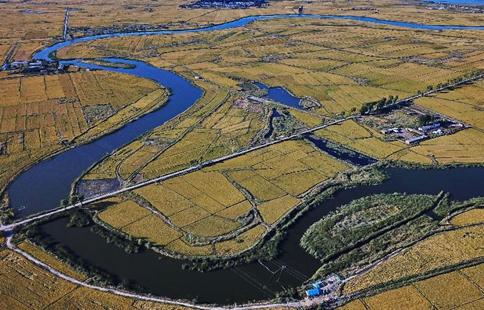by Xinhua writers Xu Liyu, Yan Jie, Liu Xiuling
BEIJING, Sept. 15 (Xinhua) -- An Jing and Wen Fang of China and Jacel Kiram of the Philippines appear to have little in common, live many kilometers apart and speak different languages. But sometimes they indulge in small talk on the Chinese smartphone app WeChat.
They meet too -- often in China. Their rendezvous is a living testimony to the ancestral bond they share from an ancient Philippine family.
In 1417, a large goodwill mission led by three kings of Sulu, in what is now the southern Philippines, ploughed through the Pacific Ocean to China to pay tribute to the emperor of the Ming Dynasty.
Emperor Yong Le reciprocated with fine hospitality and entertainment worthy of royalty.
On his way home, Paduka Pahala, the East King of Sulu, died of a disease in Dezhou, a city in east China's Shandong province. The Ming Dynasty emperor commissioned artisans to build a tomb for the king, which still stands today in the Chinese city.
The descendants of Paduka Pahala remained in China as grave keepers and were attended to by three Chinese Muslim families who relocated to live with them. They picked up the surnames An and Wen during the Qing Dynasty, and now more than 3,700 descendants live in different parts of China.
Kiram, a Sulu princess who was in Dezhou this week for the 600th anniversary of the Sulu king's journey to China, told Xinhua she felt lucky to trace the route of her ancestors centuries ago.
"This visit of ours to our relatives here in China would mean another 600 years for us to cherish. The Philippines and China can tighten their bond using the story that dates back to the 14th century," Kiram said.
A NATIONAL BOND
The family link between Sulu and its descendants in China has evolved into frequent exchanges between the two countries.
Wen Haijun and An Yanchun, both 18th-generation descendants, called their trip to the Philippines "a journey back home."
"Then president Gloria Macapagal-Arroyo met us. She told us the story of the King of Sulu and his descendants served as the best witness to the long-running friendship between the two countries," Wen said.
For decades, the descendants living in the Philippines and ambassadors of the Southeast Asian nation have frequented the city of Dezhou to rekindle the friendship.
"Those living in Sulu and here share an aspiration to help bring the two countries closer through family exchanges," An said.
The route the Sulu kings took for their journey was part of the ancient Maritime Silk Road that linked China with the rest of the world.
Six hundred years on, the Belt and Road Initiative, proposed by China in 2013, is strengthening ties between China and the Philippines.
A business conference held in Manila, capital of the Philippines, in July drew firms from Dezhou and elsewhere in China, the latest in a series of events aimed at boosting commercial links between the two countries.
For Wang Shoudong, a history professor at Dezhou University who specializes in the Sulu kings' connections with China, celebrating the journey 600 years ago is an opportunity for both countries in many ways.
It will "promote people-to-people exchanges and bring the hearts and minds of the two peoples together," Wang said.
As for Kiram, her next visit to China is already in the making. Now, Dezhou is home away from home, she said.

















